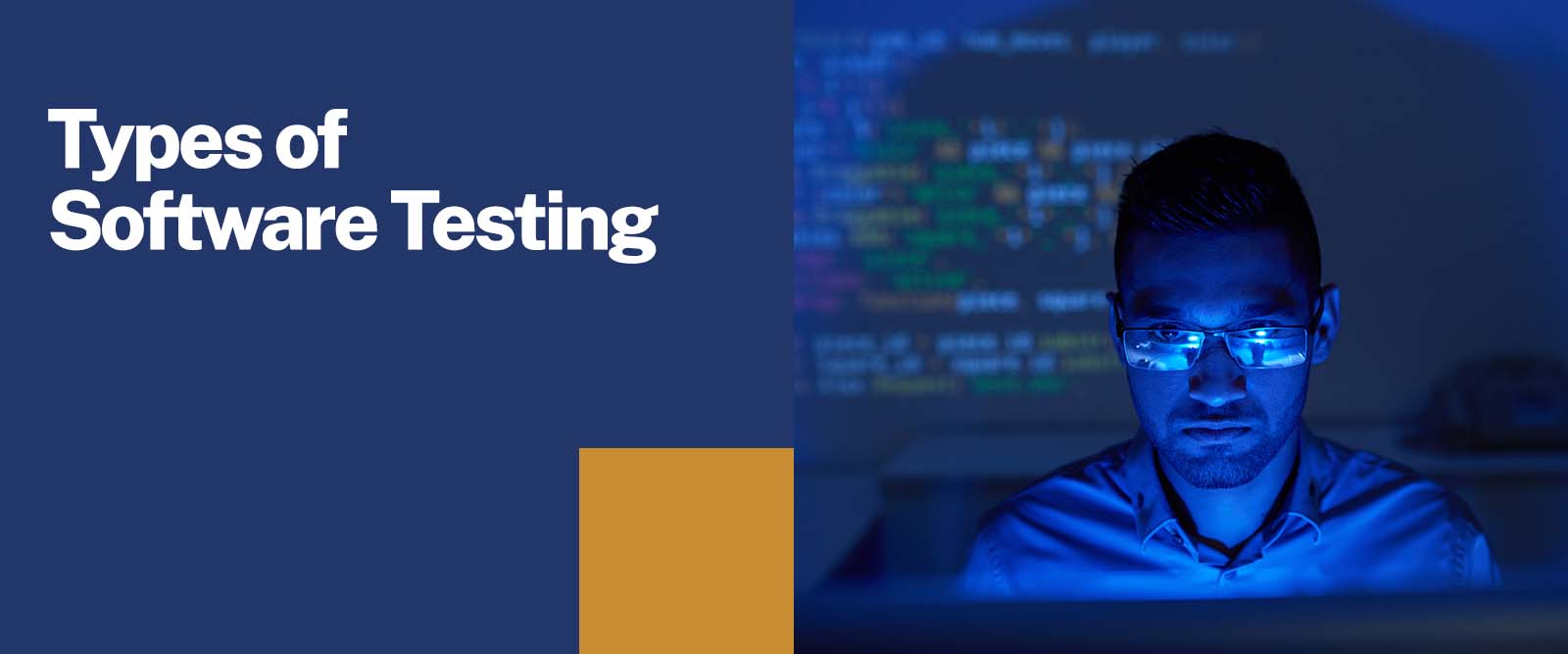5800 students unlocked their dream jobs with UG/PG programs in top colleges. Apply Now!
If you think coding means completing a software project, then no, it is not sufficient. You need to run various tests according to your software to understand and analyse how it is performing and what more can you do to make it smooth. The primary goals of software testing are to remove bugs and enhance performance, security, and user experience. Testing is a process of finding and removing all the errors from the software so that the code written works error-free. Often people ask ‘how many types of software testing are there?’ or ‘what are the different types of software testing that they can perform?’. Well, to get the answer to all these questions, you need to scroll down.
BCA Degree To Become a Software Engineer
The Bachelor of Computer Applications or BCA program is a three-year undergraduate program where a student learns about various computer applications and how to resolve computer-related issues. On gets the knowledge about computer language and how to use it through different subjects and theories. For opting BCA course, one needs to get at least 50% in 12th grade along with English as a main subject and to enrol in any college, they have to clear the entrance exam of the same. Software Testing, Machine Learning, Ethical Hacking, Computer Concepts, Web Development, and Data Analytics are some of the major skills that one learns in this program. If a BCA graduate chooses to become a software engineer or software developer, then they can earn even better. A software engineer salary is somewhere between INR 9-12 lakhs per annum.
Principles of Software Testing
- Understanding the customers’ requirements and all the tests should meet those requirements.
- Always remember to pick small parts for testing and then move on to the larger ones.
- Before implementing any test, it should be pre-decided or pre-planned, and then performing it would be worthy.
- Software testing should always be performed by a third party, and there should be an assigned QA team for the same.
- Based on the risk assessment of the application, exhaustive testing is not possible - hence, the optimal amount of testing is performed.
- The testing follows the Pareto rule that implies that 80% of the errors occur because of 20% of the components.
Different Types of Software Testing
Software testing is generally divided into two main categories, that is functional and non-functional testing. Apart from that, there is another general kind of testing that you can see is maintenance testing. Today, under this blog, you will get knowledge about different types of functional and non-functional testing, which you can use while testing your software.
Functional Testing
Functional Testing is about testing each and every functionality of the software. QA has to consider every aspect while performing functional testing. These tests can be performed manually or using automation tools though manual testing is easy here. There are several types of functional testing which one can consider.
- Unit Testing: When you test each module or aspect of the software, it is known as unit testing. To run this kind of testing, programming knowledge is the basic that one needs to know.
- Integration Testing: To see whether the combined modules work or not after integrating them, an integration test is run.
- Regression Testing: The testing that is done after the modifications made in the module, function or component is known as regression testing. It verifies whether the effects are positive or not.
- Smoke Testing: It is also known as build verification testing or confidence testing, and it makes sure the new software is ready for the next phase of testing.
- Sanity Testing: It is a subset of regression testing where it is verified whether the code changes introduced are working fine or not.
- End-to-end Testing: When you test the complete software from beginning to end, this kind of functional testing is known as end-to-end testing.
- White Box Testing: One needs to have a good knowledge of the app’s internal logic to perform white box testing, and therefore, it is performed by the development team.
- Black Box Testing: Black box testing means performing a test with no prior information on the internal workings.
- Interface Testing: Interface testing makes sure that the user interface of the application is developed according to the requirements and specifications in the document.
- Acceptance Testing: This test is performed by the client to check whether the software is built following the requirements mentioned or not.
Non-Functional Testing
Once the functional tests are performed, now it’s time to perform a non-functional test to check performance, security, usability, reliability and so on. With this testing, QA can improve software quality to a great extent. There are several non-functional tests that you can use but remember, performing these tests manually is difficult. Hence, these tests are usually executed using different types of software testing tools.
- Reliability Testing: This testing is done to check the reliability of the software and whether the software is running error-free or not.
- Compliance Testing: This is a type of software testing where the software’s compatibility is checked in different network environments with hardware, web browser and operating systems.
- Efficiency Testing: This testing is done to show the efforts put in to develop the application. It is like the test done to check the number of resources required to perform a specific function.
- Performance Testing: It checks whether the performance of the software is good or not. Certain performance testing tools can be used to check the performance of the application.
- Security Testing: It checks the security of the system and whether it can protect the data or maintain functionality as required.
- Usability Testing: This test checks how usable this app is — whether the app is smooth or not, how user-friendly it is, and whether people will get stuck while using this application or not.
- Scalability Testing: It checks whether the application/software is scalable or not. Scalability testing is about whether the web or application is working fine or not when the number of users and data increases.
- Load Testing: It checks the capacity of the system that how much load a system can take before the performance begins to degrade.
- Endurance Testing: During this test, memory consumption is observed, and it is checked for how long it can withstand the load. Through this testing, potential failure is determined.
- Disaster Recovery Testing: Crashes can happen anytime, and in this type of software testing, it is checked how soon the application can come back to normal. Whether the mechanism to recover is implemented properly or not.
Top 11 Colleges To Choose for BCA Degree
The best colleges to pursue BCA courses are
|
College Name |
Eligibility Criteria |
Average Fees (INR) |
|
Christ University, Bangalore |
10+2 with minimum 50% of marks |
1,45,000 total fees |
|
Presidency College, Bangalore |
Passed 10+2 from a recognised board |
3,30,000 total fees |
|
Parul University, Vadodara |
With a minimum of 45% aggregate, passed 10+2 from a recognised board |
2.33-4.50 lakh total fees |
|
SRM Institute of Science and Technology, Chennai |
Passed 10+2 with Mathematics as a compulsory subject |
70,000 per year fees |
|
JK Laxmipat University, Jaipur |
With Maths as a main subject, passed 10+2 with 50% minimum |
3,15,000 total fees |
|
Symbiosis Institute of Computer Studies and Research, Pune |
Passed 10+2 from a recognised board with min. 50% marks |
96,500 first year fees |
|
CRM University, Bangalore |
Passed 10+2 from a recognised board |
1,05,000 first year fees |
|
Loyola College, Chennai |
Candidates must have passed 10+2 with Mathematics as one of the subjects from the recognised board |
1,44,040 total fees |
|
GLS Institute of Computer Applications, Hyderabad |
Passed class 12 with English and Maths as compulsory subjects |
1,56,000 total fees |
|
Vellore Institute of Technology, Vellore |
Passed Class 12 with Mathematics/ Business Mathematics as one of the main subjects |
57,000 first year fees |
|
DAV College, Chandigarh |
Candidate must have passed 10+2 examination in any discipline with 50% marks from a recognised board |
1,11,000 total fees |
Conclusion
There are many types of testing in software testing and some of them are mentioned above. It is not necessary to perform all types of software testing while building software. The testing varies from software to software and the programming language that you are using. The main motive is to check the performance of the system and the functionality integrated into the software.
To choose the software testing career path, you need to enrol in a BCA degree program and learn the basics of it. Apart from that, for personal development, you need sessions from industry experts and recruiters and a professional portfolio with the help of Sunstone that improves your chances of getting hired by 200%.
HELP
Take the first step towards your dream job.
ABOUT THE AUTHOR

